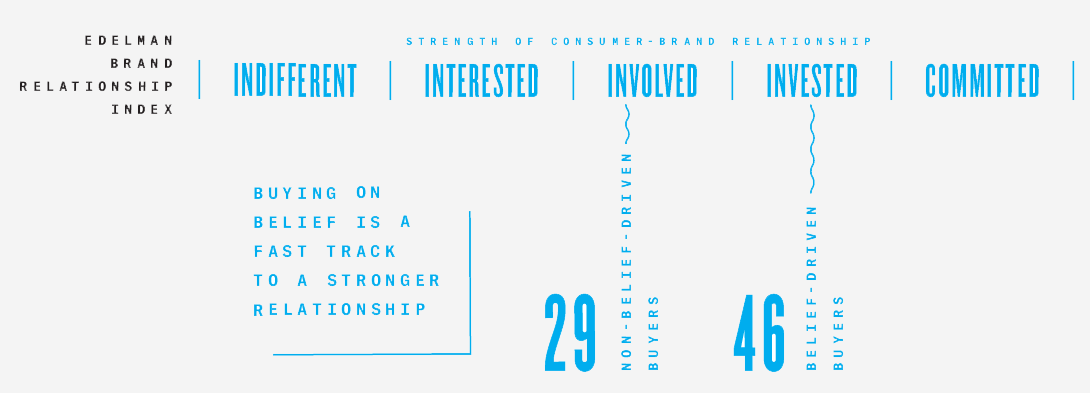Ideology dominates the cultural conversation. Around the globe, consumers are putting their personal convictions front and center. From the grocery aisle to the car dealership, they’re buying on belief. Willing or not, brands of all kinds and sizes are now navigating this new reality. And in a lightning-quick digital world, the rewards and risks are equally high. The 2017 Edelman Earned Brand study reveals that:
- 57% of consumers boycott brands based on a social or political issue
- 65% of belief driven buyers will not buy a brand if it stays silent on relevant issues
The 2017 edelman earned brand study shows that 30 percent of consumers worldwide say that they make belief-driven purchase decisions more than they did three years ago.
They will buy your brand, switch from it, avoid it and — at the extreme — boycott it over your stance on a controversial or social issue. This is the new normal for belief-driven consumers.
They’re young.
The majority of millennials (60 percent) are belief-driven buyers, as are more than half of gen z (53 percent) and gen x (51 percent).
They’re high earners.
The top quartile of earners over-index as belief-driven buyers.
They’re everywhere.
Half of global consumers say they are belief-driven, so this is a widespread trend. Belief-driven buyers are most active in developing countries such as china (73 percent) and india (65 percent). They also comprise around half of consumers in established markets such as france (50 percent) and the u.S. (47 percent).

The Edelman brand relationship index for belief-driven buyers is 46, placing them in the invested stage. That means these buyers are already deeply connected to their favorite brands and are more willing than the average consumer to buy first, stay loyal to, advocate for, and defend a brand.
With all the benefits that belief-driven buyers bring to a brand, the question brands need to ask themselves isn’t whether or not to answer their call. It’s when and how they will.


